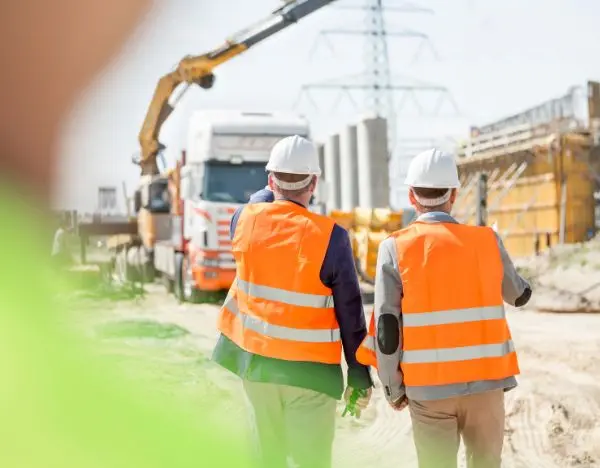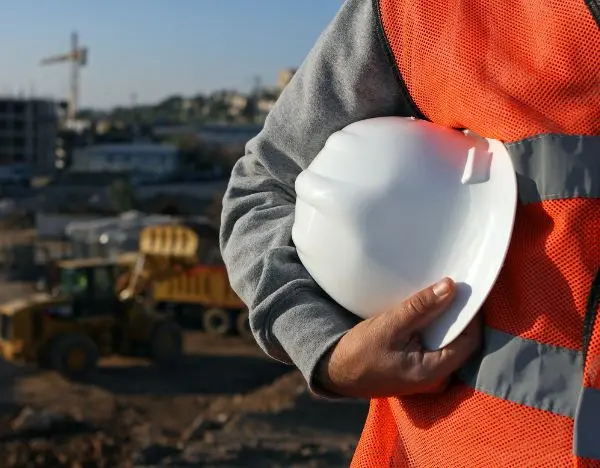Construction sites are inherently dangerous places, teeming with risks that can lead to serious injuries or even fatalities. If you or a loved one has been involved in a construction accident in New York City, understanding your legal rights is crucial. One of the most pressing questions victims face is: Who can you sue after a construction accident in NYC? At Arye, Lustig & Sassower, P.C., we have extensive experience navigating the complexities of construction accident claims and are here to guide you through who might be held liable for your injuries.
Who Can You Sue After a Construction Accident in NYC?

Determining who to sue after a construction accident in New York City depends on various factors, including the circumstances of the accident and the parties involved. Here are some potentially liable parties and examples of situations where they may be held responsible:
1. Property Owners
Property owners have a legal obligation to ensure that their premises are safe for construction workers and visitors. If a construction accident occurs due to hazardous conditions on the property, such as unsafe walkways or inadequate lighting, the property owner may be held liable. In addition, property owners, general contractors and their agents have a non-delegable obligation to comply with certain State statues such as Labor Law §240(1) [which requires proper protection on job sites to protect workers from the risk of falls from scaffolds, ladders or other elevations, or from being struck by falling objects] and Labor Law §241 [which requires compliance with certain statutory safety requirements and Industrial Code provisions]. That means that they are required to comply with these requirements even if they are not actively controlling the work being performed. It is their obligation to make sure that the work is performed safely.
2. General Contractors and Subcontractors
The general contractor and subcontractors overseeing the construction project have a duty to maintain a safe work environment. If their negligence or failure to adhere to safety protocols contributes to an accident—for example, by failing to provide proper safety equipment—they may be liable. Also, like property owners, general contractors and their agents have a non-delegable obligation to comply with the safety requirements imposed by Labor Law §§240(i) and 241. They cannot escape responsibility by claiming they delegated the task to others.
3. Equipment Manufacturers
If a construction accident is caused by defective or malfunctioning equipment, the manufacturer of that equipment could be liable. For instance, if a worker falls from a defective ladder or is injured by a malfunctioning power tool, the manufacturer may be held responsible for the resulting injuries.
4. City or Government Entities
In some cases, construction accidents in NYC may involve city or government entities, such as the Department of Transportation or the Metropolitan Transportation Authority. These entities may be responsible for maintaining safe conditions on public construction sites and ensuring compliance with safety regulations. There are numerous construction projects that involve job sites owned by government agencies – including public schools, municipal hospitals, public housing, and subways. Owners cannot escape their non-delegable duties merely because they are government agencies
Why Legal Representation is Crucial
Legal representation is crucial in construction accident cases due to the complexities involved and the potential for multiple liable parties. Here's why:
1. Navigating Legal Complexities
Construction accident cases often involve intricate legal frameworks, including state-specific laws, regulations, and statutes. An experienced attorney understands these complexities and can guide you through the process.
2. Identifying Liable Parties
Determining liability in a construction accident can be challenging, especially when multiple parties are involved. A skilled lawyer can conduct a thorough investigation to identify all potentially liable parties, including contractors, property owners, equipment manufacturers, and even governmental entities like the city.
3. Meeting Strict Deadlines
In cases involving governmental entities like the city, there are often strict deadlines for filing claims. For example, in New York, there may be a 90-day window to file a notice of claim. Missing these deadlines can jeopardize your case. A lawyer can try to make sure all necessary paperwork is filed correctly and on time.
4. Maximizing Compensation
Construction accidents can result in significant physical, emotional, and financial hardships. A construction accident attorney can help you pursue maximum compensation for medical expenses, lost wages, pain and suffering, and other damages.
5. Advocating for Your Rights
A construction accident lawyer serves as your advocate, fighting on your behalf to protect your rights and interests. They negotiate with insurance companies, represent you in court if necessary, and work tirelessly to achieve the best possible outcome for your case.
Legal representation is essential in personal injury lawsuits to navigate legal complexities, identify liable parties, meet strict deadlines, maximize compensation, and advocate for your rights. If you are an injured construction worker, don't hesitate to seek experienced legal counsel to help you through this challenging time.
How Do I Know If I Have a Construction Accident Case?
Determining if you have a construction accident case depends on various factors.
The simple truth is you may not realize that you have a meritorious construction accident case, even if you have one. That is why you should consult with an experienced construction accident attorney if you were injured. By the time you realize that you have a case, the time to file necessary papers may already be over. And the opportunity to conduct an investigation into the underlying facts may already be lost. So, the most important thing that you can do if you were injured in a construction accident is to contact an experienced construction accident attorney.
For example, you may have been injured in an accident where your employer furnished you with a defective or inadequate ladder or scaffold. And you may know that you generally cannot sue your employer for its negligence. So, you may believe that you don’t have a meritorious case – and you may be very wrong. Because the owner and general contractor have a non-delegable duty to see that you were provided with proper protection.
So, even if you are not permitted to sue your employer, you may have a valid claim against the owner or general contractor. But if the owner of the job site is a municipal agency and if you failed to file a Notice of Claim within 90 days of your accident, the opportunity to sue the owner and obtain a financial recovery for your injuries may be lost. So, the best advice we can give you is to consult promptly with an experienced construction attorney.
Consultation with a Lawyer
Ultimately, the best way to determine if you have a construction accident case is to consult with an experienced personal injury attorney. They can review the details of your situation, assess the strength of your case, and advise you on the best course of action.
If you are unsure if have a personal injury lawsuit, don't hesitate to seek legal advice as soon as possible. A skilled construction accident lawyer can help you understand your rights, navigate the legal process, and pursue the compensation you deserve for your injuries and losses.
Compensation You May Be Eligible for After a Construction Accident Injury
After suffering an injury in a construction accident, you may be eligible to receive various forms of compensation benefits to help cover your losses and damages. Here are the types of compensation you may pursue:
1. Medical Expenses
Compensation benefits for medical bills related to your injury, including hospital stays, surgeries, doctor's visits, medication, rehabilitation, and future medical treatments.
2. Lost Wages
Reimbursement for wages lost due to time taken off work to recover from your injury. This may include past and future lost earnings, as well as diminished earning capacity if your injury prevents you from returning to your previous job or limits your ability to work.
3. Pain and Suffering
Compensation for physical pain, emotional distress, and mental anguish caused by the construction accident and resulting injuries. This type of compensation aims to compensate you for the non-economic impact of your injury on your quality of life.
4. Disability and Impairment
Compensation claims for any permanent disability, impairment, or disfigurement resulting from the construction accident. This may include compensation for loss of limb, loss of mobility, or other long-term disabilities.
5. Loss of Consortium
Compensation for the impact of your injury on your relationship with your spouse or partner, including loss of companionship, emotional support, and intimacy.
6. Wrongful Death Damages
In the tragic event of a construction accident resulting in death, surviving family members may be eligible for compensation for funeral and burial expenses, loss of financial support, and loss of companionship , nurture and guidance.
7. Punitive Damages
In cases of extreme negligence or intentional wrongdoing, punitive damages may be awarded to punish the responsible party and deter similar behavior in the future.
8. Workers Compensation Benefits
In addition to the items of damages described above, if you are injured in the course of your employment, you will likely be entitled to receive workers compensation benefits which will include indemnity payments representing a portion of lost earnings as well as medical expenses.
It's essential to consult with an experienced construction accident attorney to assess the full extent of your damages and determine the appropriate amount of compensation to pursue in your case. A skilled attorney can advocate for your rights and help you navigate the legal process to secure the maximum compensation you deserve for your injuries and losses.
Ready to Seek Justice for Your Construction Accident?
Don't navigate the complexities of a construction accident case alone. Contact us today for a free consultation. Our experienced construction accident attorneys are here to advocate for your rights, hold negligent parties accountable, and help you pursue the compensation you deserve. Let us be your trusted legal partner on the path to justice and recovery.
Construction Accident Liability FAQs
1. Who can be held liable for a construction accident?
Various parties may be liable for a construction accident, including contractors, property owners, equipment manufacturers and governmental entities like the city.
2. How is liability determined in a construction accident case?
Liability is determined based on factors such as negligence, violations of safety regulations, and the actions or inactions of the parties involved. An investigation into the circumstances of the accident is essential to identify liable parties.
3. What is the "Scaffold Law" in New York, and how does it impact construction accident liability?
The Scaffold Law (Labor Law §240) imposes strict liability on property owners, contractors and their agents for injuries resulting from falls or falling objects at construction sites. This law can significantly impact liability in construction accident cases, particularly those involving elevation-related risks.
4. What if I am partially at fault for the construction accident?
New York generally follows a comparative negligence system, meaning you can still recover compensation even if you were partially at fault for the accident, but your compensation may be reduced based on your percentage of fault. However, for construction accidents with claims under Labor Law §240 involving falls from scaffolds, ladders or other elevations, or involving workers struck by falling objects, a worker’s recovery is not reduced by any comparative negligence unless the accident was caused solely by the worker’s own fault.
5. Are there deadlines for filing a construction accident lawsuit?
Yes, there are strict deadlines, known as statutes of limitations, for filing a construction accident lawsuit. In New York, for example, there may be a 90-day window to file a notice of claim when the city is involved. It's crucial to consult with an attorney promptly to ensure your claim is filed on time.
6. What compensation can I recover in a construction accident lawsuit?
Compensation in a construction accident lawsuit may include medical expenses, lost wages, pain and suffering, disability or impairment, loss of consortium, wrongful death damages, and punitive damages in cases of gross negligence and recklessness.
7. Why do I need a lawyer for a construction accident case?
Construction accident cases involve complex legal issues, multiple liable parties, and strict deadlines. A lawyer with experience in construction law can navigate these complexities, advocate for your rights, and help you pursue the maximum compensation you deserve.
8. How much does it cost to hire a construction accident lawyer?
Most construction accident lawyers work on a contingency fee basis, meaning you don't pay any upfront fees. Instead, your lawyer will only receive a percentage of the compensation you recover if they win your case. This fee structure ensures access to legal representation regardless of your financial situation.



